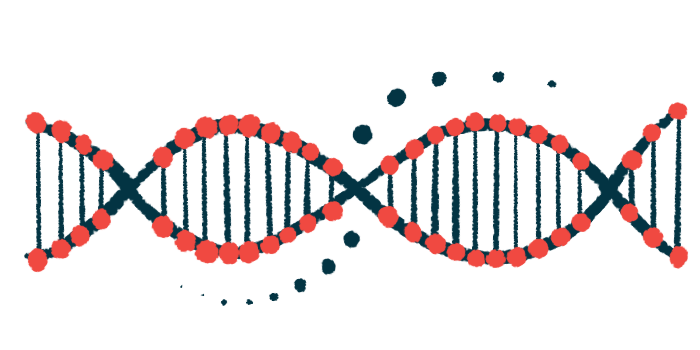GBA1 mutation linked to higher Parkinson’s risk among Africans
Mutation not previously associated with Parkinson's in studies of non-Africans

A mutation in the GBA1 gene is associated with an increased risk of Parkinson’s disease among people of African ancestry, a new study shows.
While other mutations in GBA1 have previously been linked with Parkinson’s, this mutation, which is particularly common in people of African ancestry, has not been associated before with the disease in studies of non-African populations.
The study, “Identification of genetic risk loci and causal insights associated with Parkinson’s disease in African and African admixed populations: a genome-wide association study,” was published in The Lancet Neurology.
The work was sponsored by The Global Parkinson’s Genetics Program (GP2), which is funded by the Aligning Science Across Parkinson’s initiative and The Michael J. Fox Foundation for Parkinson’s Research.
“This is an historic discovery and the first realization of our goal with GP2 — to provide a comprehensive understanding of the genetic architecture of Parkinson’s disease — which necessitates the inclusion of populations traditionally underrepresented in research,” Ekemini Riley, PhD, managing director of the Aligning Science Across Parkinson’s initiative, said in a press release.
Dozens of Parkinson’s-associated mutations found in studies of Europeans
“GP2 has significantly advanced the practice of thoughtfully bringing together data across cohorts, countries and continents in a way that has led to this major breakthrough, will continue to accelerate discovery, and lay the groundwork for new therapies to improve the lives of people living with the disease,” Riley said.
Although the causes of Parkinson’s remain incompletely understood, genetics are thought to play a substantial role in determining disease risk. Researchers have identified dozens of genetic mutations linked with Parkinson’s. However, most research of this type has focused only on people of European ancestry.
The GP2 led this study with the goal of identifying Parkinson’s-associated genetic risk factors in people of African ancestry.
“As researchers and clinicians, our shared responsibility is to make sure Parkinson’s science is representative of all communities around the world,” said Njideka Okubadejo, MD, co-author of the study at the University of Lagos in Nigeria.
Using databases supplied by GP2, the International Parkinson Disease Genomics Consortium Africa, and 23andMe, the researchers identified genetic data on 197,918 people of African ancestry, of whom 1,488 had a diagnosis of Parkinson’s.
Two-thirds of Africans in analysis were from Nigeria
The study included patients with only African ancestry, as well as African admixed (people with ancestry from Africa and also other places). The researchers noted that about two-thirds of the people included in the analysis were from Nigeria, so even this large dataset probably doesn’t fully capture the genetic diversity present across all of Africa.
“We gathered — to our knowledge — the largest collection of patients with Parkinson’s disease and controls from African and African admixed ancestry populations to comprehensively assess the genetic architecture of Parkinson’s disease on a genome-wide scale,” the researchers wrote.
With these genetic data in hand, the scientists conducted a type of analysis called a genome-wise association study (GWAS). Simplistically, GWAS uses statistical measures to check if a particular mutation is significantly more common among people who have a disease compared to people who don’t have the disease. If the mutation is more common in people with the disease, then it follows that the mutation may be a risk factor for the disease.
Results of the GWAS suggested that a mutation in the GBA1 gene was associated with a higher risk of Parkinson’s among people of African ancestry.
Several different mutations in this gene have been linked with Parkinson’s risk in other populations. However, this specific mutation — dubbed rs3115534-G — is significantly more common in populations with African ancestry, and it has not previously been linked with Parkinson’s risk.
These data “reinforce the notion that the genetic architecture of [the GBA1 gene] and its influence on risk and onset is different across populations,” the researchers wrote.
As researchers and clinicians, our shared responsibility is to make sure Parkinson’s science is representative of all communities around the world.
rs3115534-G mutation associated with earlier onset of Parkinson’s symptoms
Everyone inherits two copies of the GBA1 gene, one from each biological parent. In further tests, the researchers found that patients carrying two copies of the rs3115534-G mutation tended to start experiencing Parkinson’s symptoms at earlier ages, compared to individuals with one or zero copies of the mutation.
The GBA1 gene provides instructions for making a protein called glucocerebrosidase, which normally helps to clear away certain cellular waste products.
The researchers noted that the rs3115534-G mutation doesn’t affect the part of the GBA1 gene that provides instructions for making glucocerebrosidase. Instead, this mutation may alter the gene’s activity, resulting in problems with the amount of glucocerebrosidase protein that’s made by the body’s cells.
Further studies to explore the biological consequences of this mutation may open doors for targeted treatments, the researchers wrote.
“This GBA1 result is a step toward that future, where the research field is prioritizing, learning from, and treating all people with Parkinson’s disease,” Okubadejo said.








